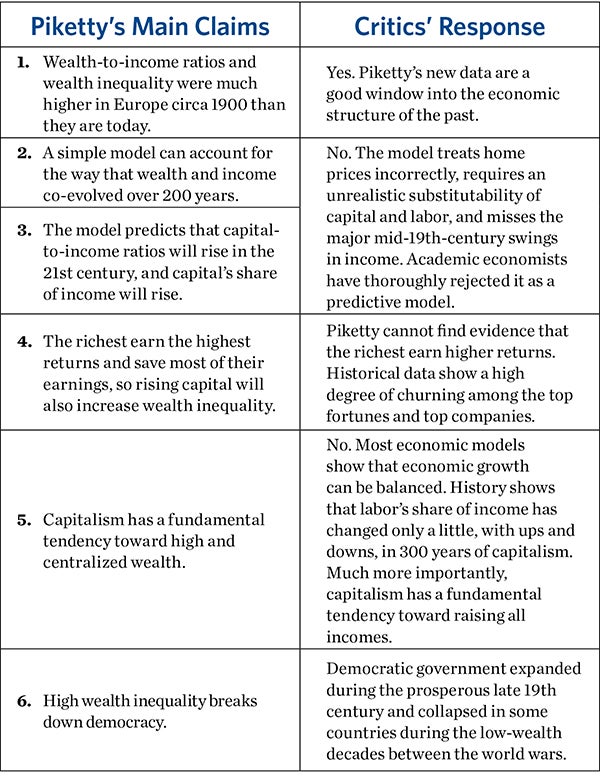In his surprise best seller Capital in the Twenty-First Century, Thomas Piketty argues that the wealth of rich owners of capital grows faster than the wages of workers in capitalist economies. Hence, inequality always increases unless destructive world wars or heavy-handed government regulation of the economy intervene. To remedy modern inequality, he proposes punitive taxes on the wealthy.
Inequality has been a topic of discussion in recent years, largely because President Barack Obama has focused on it. Some policymakers and commentators who advocate for higher taxes and other redistributive policies seized on Piketty’s book as evidence supporting their preferred policies. However, since the book’s publication, more and more economists have published research that refutes Piketty’s data and findings.
Deeply Flawed Findings
In a September 2014 paper, Heritage Foundation scholars Curtis Dubay and Salim Furth used the most persuasive critiques to show that Piketty’s findings are deeply flawed.
Central to their argument is Piketty’s failure to account for increases in housing prices. Higher home prices increase the wealth of the upper-middle class, but they do not change the production structure of the economy. Without home prices, Piketty’s claims about rising wealth inequality collapse.
Piketty’s model also makes unrealistic assumptions about the wealthy’s saving habits and the substitutability of capital and labor. Once these errors are corrected, Piketty’s central prediction is even more dubious.
More scholarship scrutinizing Capital has emerged since Dubay and Furth’s summary. In November, Furth and Malin Sahlén uncovered Piketty’s deceptive presentation of Swedish wealth data. Phillip Magness and Robert Murphy found factual errors and the cherry-picking of the data. In January, Alan Auerbach and Kevin Hassett showed that economic theory does not support Piketty’s tax proposal.
Piketty Debunked
The scholarly consensus now is that Piketty has been thoroughly debunked. As such, policymakers should ignore his policy prescriptions. Instead, they should focus on reforms that would increase opportunity for everyone, including reforms of the tax code, entitlements, and the regulatory environment for business.































